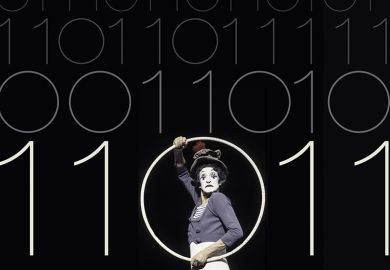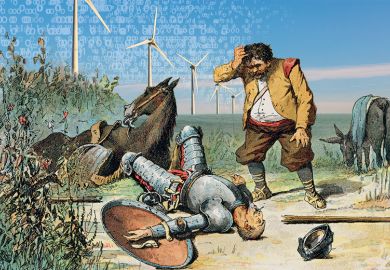How old is lexicography? The surprising answer Jonathon Green gives is: as old as written language. This is rather like maintaining that atlases are coeval with mapmaking. It is not even a half-truth, much less a respectable exaggeration. To make matters worse, the author goes on to date the earliest dictionaries from 2500 bc, which presumably makes writing a much more recent invention than anyone had previously suspected.
In spite of the claim in the preface, this scissors-and-paste compilation is not a history of lexicography. Or if it is, the historian's conception of his subject is myopically focused on English, certainly for the post-Renaissance period. The brothers Grimm are worth just two pages. The whole oriental tradition of lexicography does not even get that. In short, there is nothing here worth calling a comparative perspective.
Although there is a bold early section entitled "What is a lexicographer?", that key question is never satisfactorily answered. It is dodged by the well-known expedient of throwing a dozen conflicting definitions into the arena. In later chapters, the issue is fudged by evasive phrases such as "dictionaries as such", "dictionaries proper", "in the modern, professional sense of the term" and even "in the strictest of senses" (although which that might be is not revealed). All of which leave us none the wiser. The result is that almost any glossary or word-list can be treated, for Green's purposes, as at least a protodictionary produced by a protolexicographer.
The first 100 pages take the reader at break-neck speed from pre-Babylonian Sumer down to the Renaissance. Considering the ground to be covered, some of the details chosen for inclusion are odd. Who really needs to know that the first official printer to the University of Cambridge "died in early August 1588 and was buried on August 9"?
Nor is the information given always entirely reliable. Before 1483, it seems, the only grammar book most English schoolboys knew was one called the Ars Minor, written by St Jerome, and already 1,000 years out of date. The absence of English dictionaries "as such" in the early 16th century is explained by the fact that, in the scholarly world, "there was still no English". What did the uneducated in England speak, then? A "mongrel version" of that language, "blending the remnants of Anglo-Saxon with Norman French". Clearly a desperate linguistic situation, which demanded the rise of British lexicography if all was not to be lost.
Just how seriously some of this is meant to be taken is not clear. "Scholarly" is an adjective that appears on the dust-jacket. But it is hard to square this with, for example, the theory advanced - apparently with no tongue in cheek - that one of the reasons for the proliferation of polyglot dictionaries in the 16th century was that during the peasant's revolt (several generations previously) many Flemings had perished on English soil because they called bread and cheese "Case and Brode". There is something delightfully Swiftian about the vision of foreigners carrying learned tomes around with them in case of outbreaks of xenophobia among the local population.
There are two chapters on slang dictionaries (nearly all English, of course): a curiously disproportionate allocation of space for any serious history of lexicography, but perhaps pointing to what the author is really interested in.
When the book eventually gets to its predictable heroes - Johnson, Webster, Murray & Co. - it trudges wearily over well-ploughed ground. The title Chasing the Sun comes from the preface to Johnson's dictionary, where it is a simile for the illusory goal of comprehensiveness. How conspicuously inappropriate this is to the aims of many of the forgotten worthies included in Green's history leads one to wonder whether it is not better read as the author's own apologia pro opere suo.
Roy Harris, emeritus professor of general linguistics, University of Oxford, is the editor of Language and Communication.
Chasing the Sun: Dictionary-Makers and the Dictionaries They Made
Author - Jonathon Green
ISBN - 0 224 04010 3
Publisher - Jonathan Cape
Price - £25.00
Pages - 423
Register to continue
Why register?
- Registration is free and only takes a moment
- Once registered, you can read 3 articles a month
- Sign up for our newsletter
Subscribe
Or subscribe for unlimited access to:
- Unlimited access to news, views, insights & reviews
- Digital editions
- Digital access to THE’s university and college rankings analysis
Already registered or a current subscriber? Login



